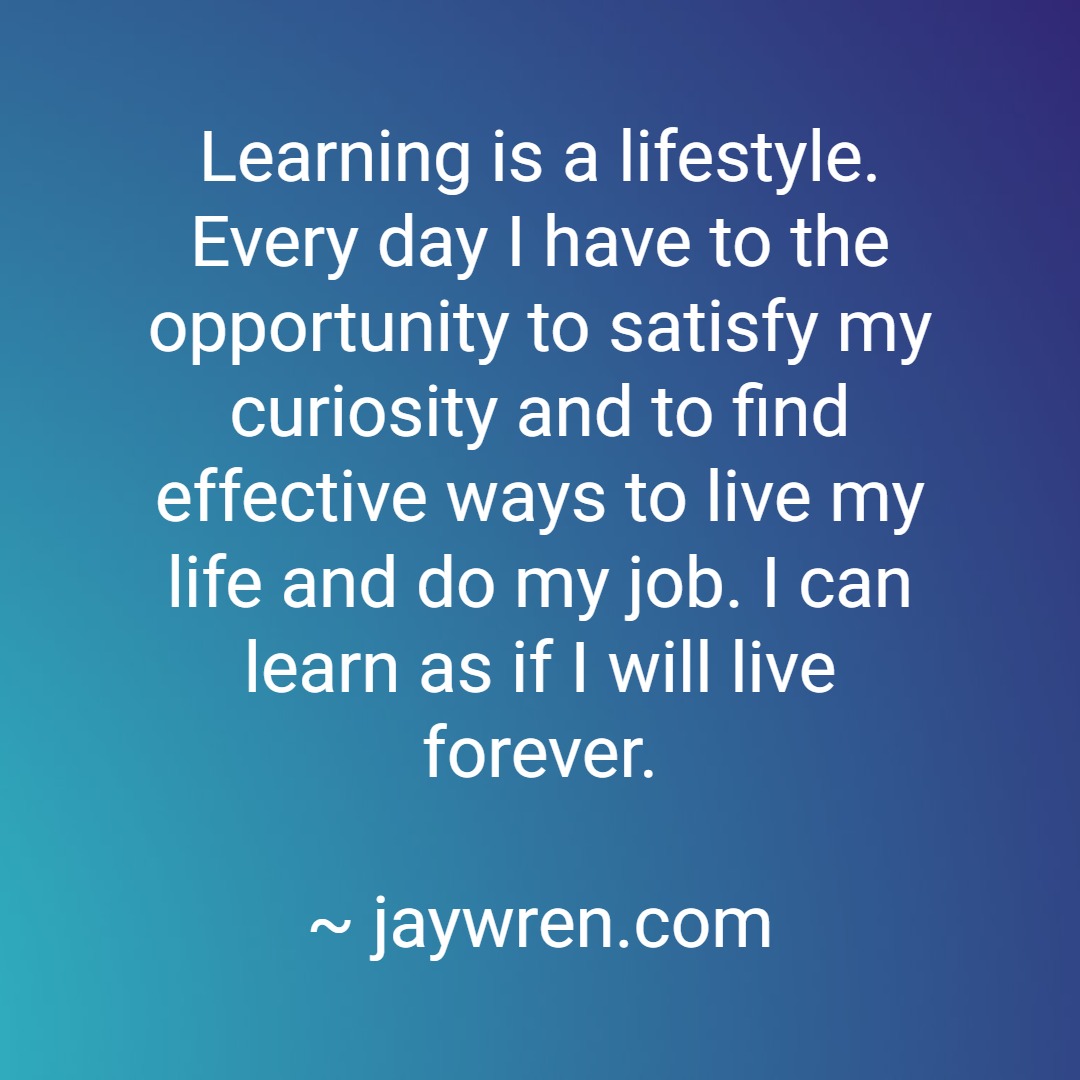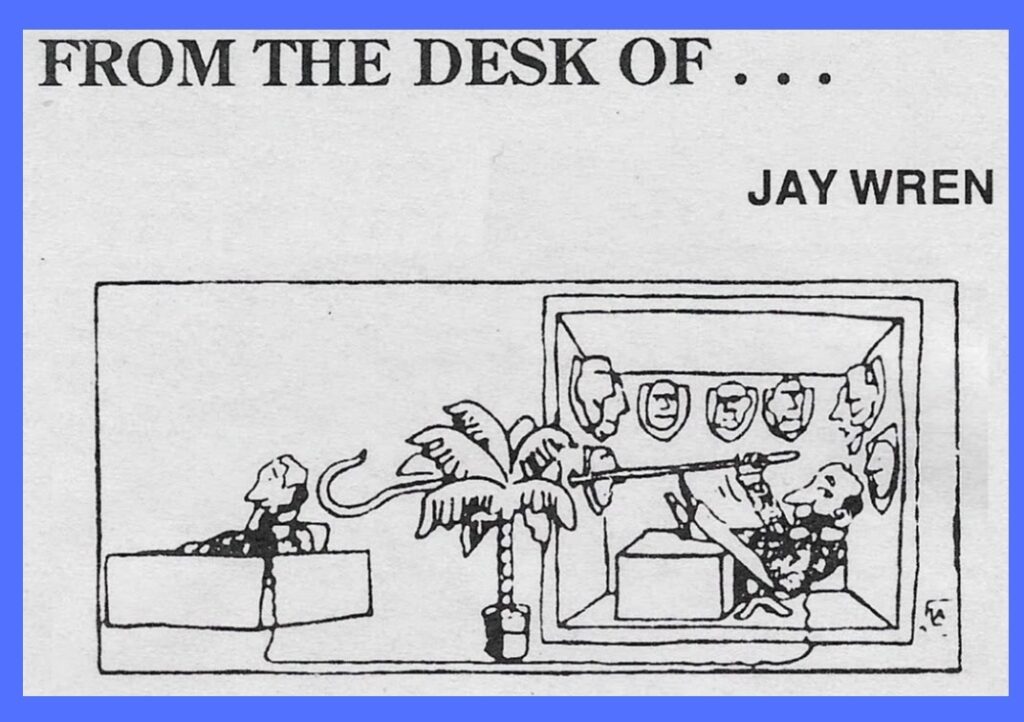Learning is a lifestyle. Every day I have to the opportunity to satisfy my curiosity and to find effective ways to live my life and do my job. I can learn as if I will live forever. ~ jaywren.com
Learning is simple as staying curious and continuing to ask questions, simple questions like these: Is that true? How do I do that? What is this all about?
Knowledge is more available than ever. Here are some common sources.
- Internet encyclopedias and dictionaries to clarify issues and provides facts
- Forums that range from LinkedIn Groups, Reddit, and specific information related to product uses
- Do-It-Yourself Websites
- Search engines to guide an Internet user to sites which contain information
- Company product websites
- News and sports websites
- Podcasts Online books
- Print books
- Television
- Radio Our friends
- Online chat sources
I have no doubt overlooked some sources.
I Stay Active in Learning Environments
I saw a question on an Internet forum about the difference between ethics and morals. Finding an answer to the question is simple. I used online definitions from Internet dictionaries. From various sources, I came up with this answer and got five likes for my response.
“Definitively, ethics are “moral principles that govern a person’s or group’s behavior” and morals are “a person’s standards of behavior or beliefs about what is and is not acceptable for them to do.” The difference between the two is that ethics govern behavior and morals are a set of standards or levels of acceptability. I cannot think of an instance when a person confused the two.”
Looking up do-it-yourself solutions and finding definitions to words is just the beginning of learning as a lifestyle. Through audio books, people can learn a new language. Through service manuals, people can learn how to repair a motorcycle engine or a boat engine. Many people learn new methods of diet and exercise as well as practices of emotional and mental development.
Learning is a lifestyle. Every day I have to the opportunity to satisfy my curiosity and to find effective ways to live my life and do my job.
Photo by Luke Chesser on Unsplash





